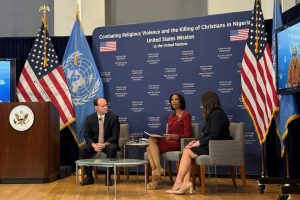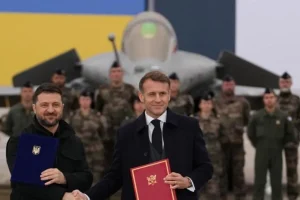Tehran, Iran – General Hossein Salami, the commander of Iran’s powerful Islamic Revolutionary Guard Corps (IRGC), has been killed in Israeli strikes targeting Iran early on Friday, making him the most senior Iranian military leader to die in the attacks. The 65-year-old was known for his hardline stance against Iran’s regional rivals, including Israel and the United States.
Just last month, General Salami had warned that Tehran would “open the gates of hell” if attacked by either country.
Israel launched what it described as widescale strikes against Iran, asserting that its targets included nuclear facilities, ballistic missile factories, and military commanders. This comes despite warnings from US President Donald Trump, who advised his ally against jeopardising ongoing talks on a potential nuclear deal with Tehran.
Iran has warned that Israel and the US – which denies involvement – will pay a “heavy price” for the attacks, raising concerns that the already fragile region could descend into full-scale war.
Beyond General Salami, the Israeli strikes also reportedly killed Mohammad Bagheri, Chief of Staff of the country’s armed forces, Gholamali Rashid, the deputy commander of the Iranian armed forces, and several nuclear scientists.
Only a day before the strikes, General Salami had declared Iran “fully ready for any scenarios, situations, and circumstances.” He had previously stated: “The enemy thinks it can fight Iran the same way it fights defenceless Palestinians who are under an Israeli siege. We are war-tested and experienced.”
General Salami joined the Revolutionary Guards, a powerful branch of the Iranian armed forces, in 1980 during the Iran-Iraq war. He rose through the ranks, becoming deputy commander in 2009 and then commander a decade later. Since the 2000s, he has faced sanctions from the UN Security Council and the US due to his involvement in Iran’s nuclear and military programmes.
He often boasted of Iran’s military capabilities, once declaring that the country was “on the verge of becoming a world power.” General Salami had openly welcomed the prospect of military conflict with Israel and the US. Following an Israeli strike against Iranian targets in Syria in 2019, he vowed to “wipe the Zionist regime” off the political map. Similarly, after another Israeli strike in April last year on the Iranian embassy in Syria, which killed seven members of the Revolutionary Guards including two generals, Salami issued a stark warning: “Our brave men will punish the Zionist regime.”
Historical Context and Regional Influence of the IRGC
Iran and Israel were allies until the 1979 Iranian Revolution, which ushered in a regime that has since made opposing Israel a core ideological tenet. The current Iranian regime does not recognise Israel’s right to exist. Iran’s supreme leader, Ayatollah Ali Khamenei, has repeatedly referred to Israel as a “cancerous tumour” that “will undoubtedly be uprooted and destroyed.”
In response, Israel views Tehran’s rhetoric as an existential threat. Israel and its allies have also criticised Iran’s strategy of building up proxy forces across the region, including the Lebanese Shia militant group Hezbollah, which is sworn to Israel’s destruction.
The Islamic Revolutionary Guard Corps (IRGC) was established by Iran’s clerical leadership 40 years ago to defend the country’s Islamic system and act as a counterweight to the regular armed forces, which were not entirely trusted. With over 190,000 active personnel and its own ground, navy, and air forces, the Revolutionary Guards are one of Iran’s most powerful and feared military and political groups. While the traditional army guards the country’s borders, the IRGC’s primary role is to protect the regime itself.
The IRGC reports directly to the supreme leader, granting it significant power that is not easily checked by other state institutions. It oversees Iran’s strategic weapons programmes and controls the paramilitary Basij Resistance Force, often deployed to suppress domestic dissent. The group is also believed to control approximately a third of Iran’s economy through various subsidiaries and trusts, holding billions of dollars in construction and engineering contracts.
Internationally, the IRGC exerts influence by providing financial, military, and advisory support to allied governments and armed groups across the Middle East. Its most elite members operate the shadowy Quds Force, an overseas operations arm with ties to armed groups in Afghanistan, Iraq, Lebanon, the Palestinian territories, and Yemen.
Many former Revolutionary Guards officers continue to hold influential positions within Iran’s government, parliament, and other political bodies, including former President Mahmoud Ahmadinejad and former parliamentary speaker Ali Larijani.





Add Comment